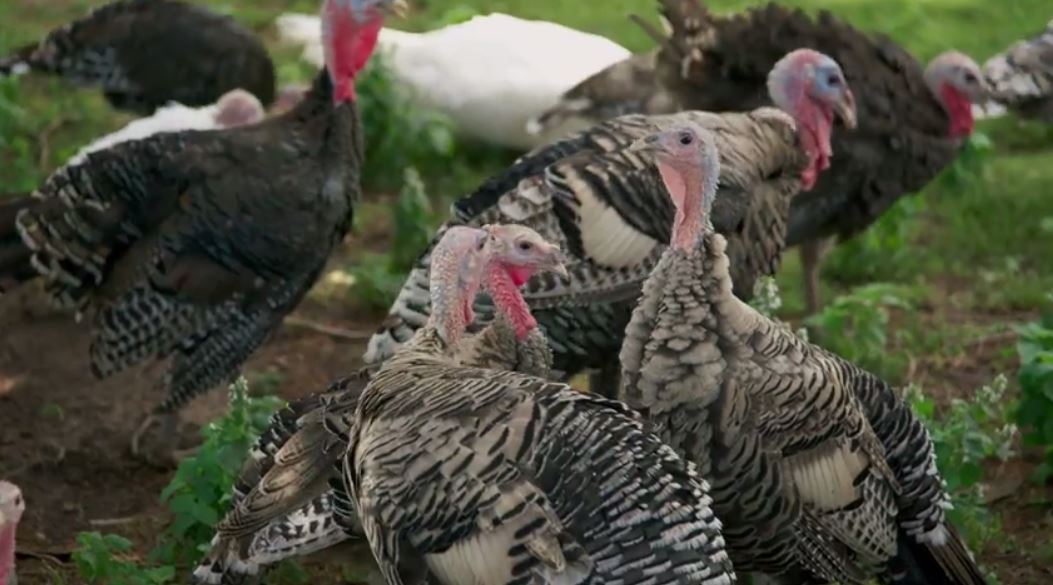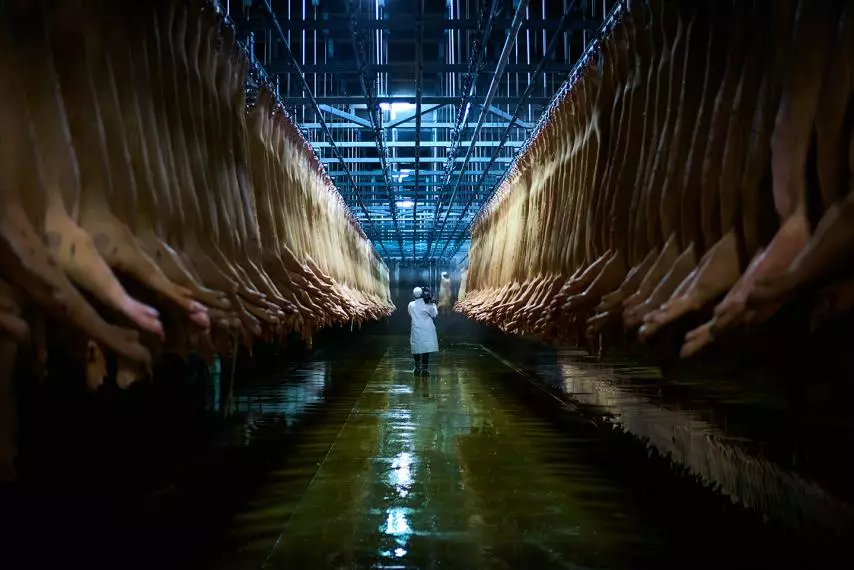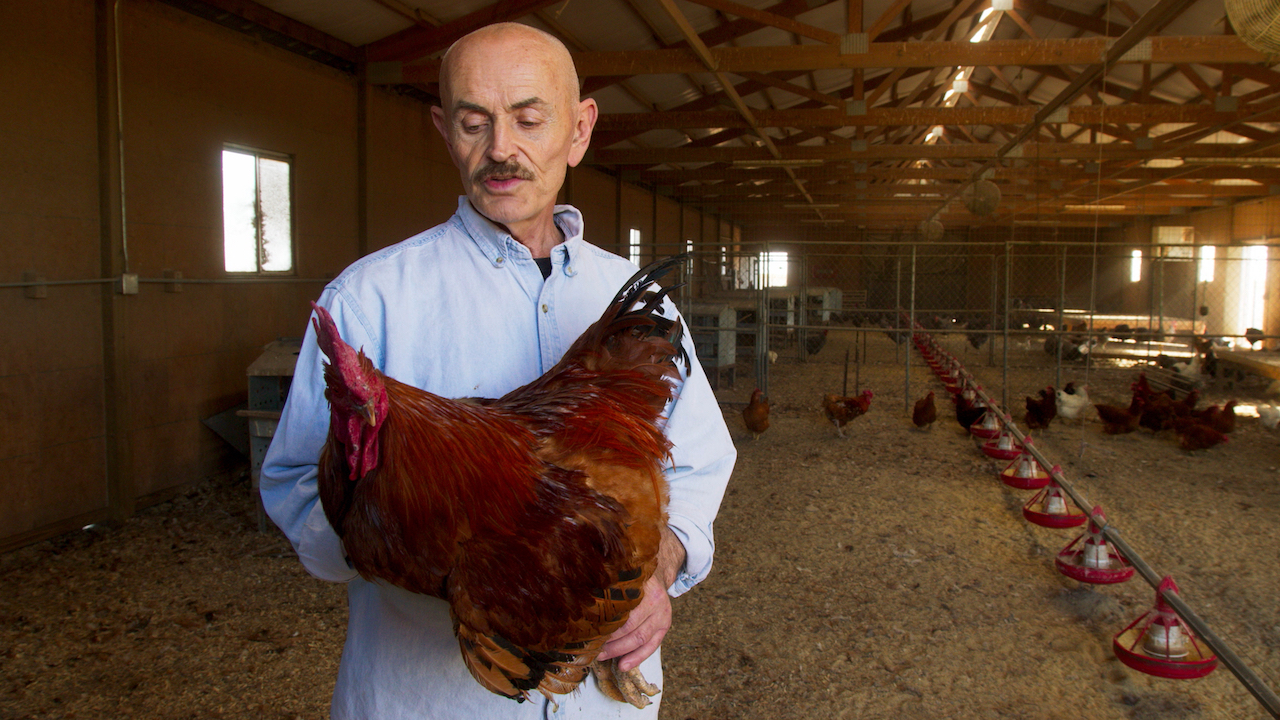
Documentarian Christopher Dillon Quinn explores the current conditions and methodologies related to farming in American in EATING ANIMALS.
Eating Animals is a documentary by Christopher Dillion Quinn (God Grew Tired of Us), and narrated by Natalie Portman (Black Swan) that focuses on the food industry in America. In particular, Eating Animals focuses primarily on whistle blowers within “factory farming,” a practice whereby corporations try to produce meat as quickly, cheaply, and as efficiently as possible, and those farmers on the other end of the spectrum who are trying to preserve the old ways of sustainability that takes into consideration the health and well-being of animals.
Quinn follows a few specific individuals in his film who are passionate. There is the traditional turkey farmer who is feeling the squeeze from companies who have more money and resources than him; the family man who sold out to big business and regrets his decision; the fisherman who wants to know why all the fish in his creek are dying (swine fecal matter contamination); and a handful of others in similar situations. Quinn is focused on education—explaining the state of our country whereby we enjoy access to fast food while most give little thought to the consequences surrounding how it appears on our plates.

Where Eating Animals succeeds is in its use of imagery and explaining halo effects. Quinn finds a strong balance with shocking pictures and footage of animal cruelty, coupled with horrific story-telling, to get the attention of even the most devout meat-eater without resulting to a level of gore that would tune people off completely. A central narrative of Eating Animals is consideration, asking the audience: do you think about the process of getting your meat processed? Or perhaps asked differently: if you knew the level of pain animals suffered for your meal, would you enjoy it all the same?
Eating Animals also explores some interesting territory about the far-reaching effects of big business food production. For example, Quinn does a very good job of explaining ancillary shockwaves of factory farming including the effect it has on our healthcare industry. For example, the price of drugs has gone up given the need to mass medicate animals living in poor conditions waiting to be slaughtered. Another potential issue is the creation of superbugs—strains of bacteria that evolved due to animals being bred under unnatural conditions. These strains could affect humans, just as H1N1 (the bird flu) did some years back, a flu whose mutation likely has origins in factory farming.

While Eating Animals does a strong job of illuminating the negative side of factory farming, it lacks a deeper theme or concrete ideas on what next steps we as a society should take. Quinn dances around the notion that people need to eat less meat and more plant-based food, and even introduces some really interesting ways in which innovation has led new to vegetarian options. However, no avenues are ever fully explored and even some still are discouraged—Quinn shows a very honest portrayal of whistleblowing which can include a serious emotional toll. As audiences become invested in the cause over the course the film, it is possible that by the end they feel a bit overwhelmed or disillusioned playing out this inner monologue: this is awful, and I don’t like what’s happening…but I really like meat, and I’m not sure there is anything I can personally do to stop this. As such, the factory farm wheel is likely to keep turning.
Eating Animals offers a very transparent look into the world big agriculture in America, and for that it should be applauded. Where it falls short is offering audiences any clear direction as to what they should do with this insight and information.
Grade: B-
Photos courtesy of Sundance Selects